- Home
- Fyodor Dostoyevsky
Prestuplenie i nakazanie. English
Prestuplenie i nakazanie. English Read online
Produced by John Bickers; and Dagny
CRIME AND PUNISHMENT
By Fyodor Dostoevsky
Translated By Constance Garnett
TRANSLATOR'S PREFACE
A few words about Dostoevsky himself may help the English reader tounderstand his work.
Dostoevsky was the son of a doctor. His parents were very hard-workingand deeply religious people, but so poor that they lived with their fivechildren in only two rooms. The father and mother spent their eveningsin reading aloud to their children, generally from books of a seriouscharacter.
Though always sickly and delicate Dostoevsky came out third in thefinal examination of the Petersburg school of Engineering. There he hadalready begun his first work, "Poor Folk."
This story was published by the poet Nekrassov in his review andwas received with acclamations. The shy, unknown youth found himselfinstantly something of a celebrity. A brilliant and successful careerseemed to open before him, but those hopes were soon dashed. In 1849 hewas arrested.
Though neither by temperament nor conviction a revolutionist, Dostoevskywas one of a little group of young men who met together to read Fourierand Proudhon. He was accused of "taking part in conversations againstthe censorship, of reading a letter from Byelinsky to Gogol, and ofknowing of the intention to set up a printing press." Under NicholasI. (that "stern and just man," as Maurice Baring calls him) this wasenough, and he was condemned to death. After eight months' imprisonmenthe was with twenty-one others taken out to the Semyonovsky Square tobe shot. Writing to his brother Mihail, Dostoevsky says: "They snappedwords over our heads, and they made us put on the white shirts worn bypersons condemned to death. Thereupon we were bound in threes to stakes,to suffer execution. Being the third in the row, I concluded I had onlya few minutes of life before me. I thought of you and your dear ones andI contrived to kiss Plestcheiev and Dourov, who were next to me, and tobid them farewell. Suddenly the troops beat a tattoo, we were unbound,brought back upon the scaffold, and informed that his Majesty had sparedus our lives." The sentence was commuted to hard labour.
One of the prisoners, Grigoryev, went mad as soon as he was untied, andnever regained his sanity.
The intense suffering of this experience left a lasting stamp onDostoevsky's mind. Though his religious temper led him in the end toaccept every suffering with resignation and to regard it as a blessingin his own case, he constantly recurs to the subject in his writings.He describes the awful agony of the condemned man and insists on thecruelty of inflicting such torture. Then followed four years of penalservitude, spent in the company of common criminals in Siberia, wherehe began the "Dead House," and some years of service in a disciplinarybattalion.
He had shown signs of some obscure nervous disease before his arrestand this now developed into violent attacks of epilepsy, from which hesuffered for the rest of his life. The fits occurred three or four timesa year and were more frequent in periods of great strain. In 1859 he wasallowed to return to Russia. He started a journal--"Vremya," which wasforbidden by the Censorship through a misunderstanding. In 1864 he losthis first wife and his brother Mihail. He was in terrible poverty, yethe took upon himself the payment of his brother's debts. He startedanother journal--"The Epoch," which within a few months was alsoprohibited. He was weighed down by debt, his brother's family wasdependent on him, he was forced to write at heart-breaking speed, and issaid never to have corrected his work. The later years of his life weremuch softened by the tenderness and devotion of his second wife.
In June 1880 he made his famous speech at the unveiling of themonument to Pushkin in Moscow and he was received with extraordinarydemonstrations of love and honour.
A few months later Dostoevsky died. He was followed to the grave by avast multitude of mourners, who "gave the hapless man the funeral of aking." He is still probably the most widely read writer in Russia.
In the words of a Russian critic, who seeks to explain the feelinginspired by Dostoevsky: "He was one of ourselves, a man of our blood andour bone, but one who has suffered and has seen so much more deeply thanwe have his insight impresses us as wisdom... that wisdom of the heartwhich we seek that we may learn from it how to live. All his othergifts came to him from nature, this he won for himself and through it hebecame great."
CRIME AND PUNISHMENT
PART I

 The Eternal Husband
The Eternal Husband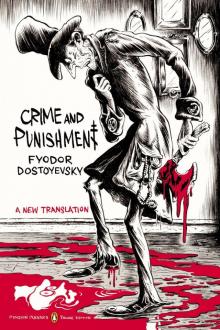 Crime and Punishment
Crime and Punishment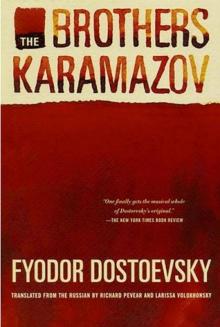 The Brothers Karamazov
The Brothers Karamazov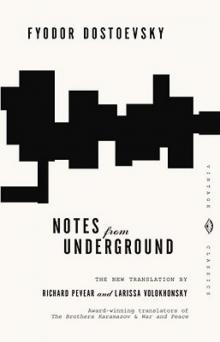 Notes From Underground
Notes From Underground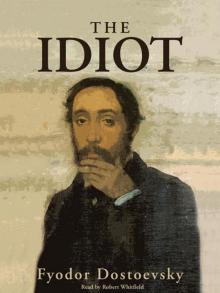 The Idiot
The Idiot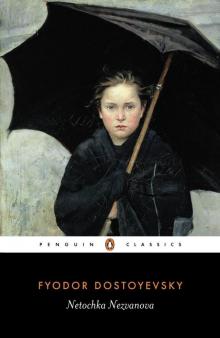 Netochka Nezvanova (Penguin ed.)
Netochka Nezvanova (Penguin ed.)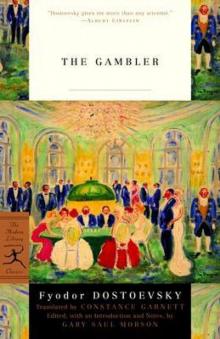 The Gambler
The Gambler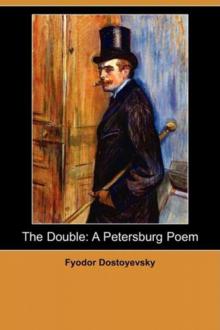 The Double
The Double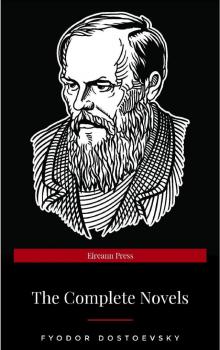 Poor Folk Anthology
Poor Folk Anthology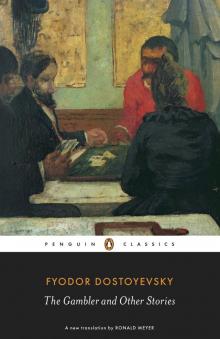 The Gambler and Other Stories (Penguin ed.)
The Gambler and Other Stories (Penguin ed.)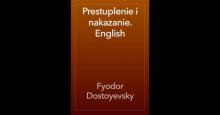 Prestuplenie i nakazanie. English
Prestuplenie i nakazanie. English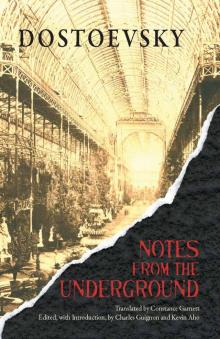 Notes from the Underground
Notes from the Underground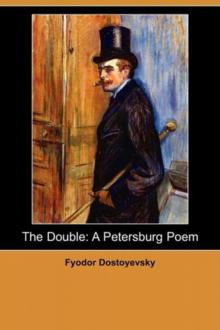 The Double: A Petersburg Poem
The Double: A Petersburg Poem White Nights and Other Stories / The Novels of Fyodor Dostoevsky, Volume X
White Nights and Other Stories / The Novels of Fyodor Dostoevsky, Volume X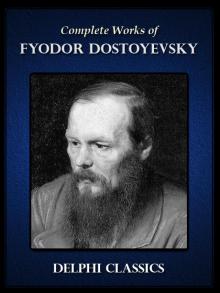 Complete Works of Fyodor Dostoyevsky
Complete Works of Fyodor Dostoyevsky Poor Folk and Other Stories
Poor Folk and Other Stories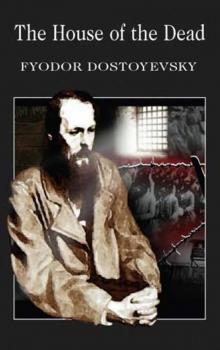 The House of the Dead
The House of the Dead